Born and raised a voracious reader of anything she could get her hands on in rural Nova Scotia, Rose Sutherland has an overactive imagination and once fell off the roof of her house trying to re-enact Anne of Green Gables. She’s continued to be entertainingly foolhardy since, graduating theatre school in NYC, apprenticing at a pâtisserie in rural France, and moonlighting as an usher and bartender in Toronto. Her hobbies include yoga, dance, singing, searching out amazing coffee and croissants, and making niche jokes about Victor Hugo on the internet. She’s mildly obsessed with the idea of one day owning a large dog, several chickens, and maybe a goat.
I had the opportunity to interview Rose, which you can read below.
First of all, welcome to Geeks OUT! Could you tell us a little about yourself?
Oh gosh. I grew up in rural Nova Scotia, reading everything I could get my hands on, drawing, writing weird little stories, and being deeply uncool. The second I was finished high school, I left home to pursue a career in theatre —which I loved, but was ultimately frustrated by, so I went back to school in my 30’s to train as a pastry chef. At the same time, I started writing again, with no expectation of making a career of it—it was just for fun, to reconnect to something I used to love. Somehow, five years and a lot of hard work later, my first novel is being published.
What can you tell us about your debut book, A Sweet Sting of Salt? What drew you to write this project?
A Sweet Sting of Salt is a reimagining of the folktale of the Selkie Wife, as a queer historical fantasy set in early 19th century Nova Scotia. It’s told from the point of view of Jean, a young midwife who finds a mysterious woman in labour outside her home in the middle of the night. The stranger turns out to be the wife of Jean’s neighbour, but the entire situation raises instant red flags for the midwife, who sets out to discover what’s going on with the couple next door.
I’d been wanting to write a love story between two women for a while, but what really set the wheels in motion for Salty was a Tumblr post, of all things, about modern iterations of fairytale creatures. It mentioned selkies testifying before the UN about human trafficking, and boom! I had this galaxy brain moment, making utterly unhinged connections: Fifteen minutes later I was like: Oh, I found my story!
Since your debut is said to be inspired by the classic folktale “The Selkie Wife,” I’m curious what draws you in the selkie myth?
I have an interesting relationship with this myth. I’ve always connected with the setting, and the aching, capital-R Romantic sense of loneliness and longing baked into it. But it also left a bad taste in my mouth, because I couldn’t sympathize with the man whose wife disappears into the sea at the end. Even as a child, I was too keenly aware of how he’d forced her into a marriage through magical means, and the implications of that situation are even more disturbing to me now, as an adult. It’s the messy contrast between those different ways of viewing the story—as romance, or horror— that really drew me to it.
As a writer, what drew you to the art of storytelling, specifically speculative fiction?
Storytelling feels like it’s always been part of me. There’s a scene in this book that features a family repeating stories around the dinner table, and that’s very much how I grew up—some of those tales are cribbed directly from my parents, in fact. I love to entertain people, to open windows into other worlds, and to live in them myself as I work—my writing grew out of the same impulses as my love of theatre. I’ve always adored myth and folklore and history, and throughout my teens and early twenties I got very into fantasy and the gothic end of horror, gravitating toward books with a strong romantic subplot and focus on character. Even though I tend more toward historical than fantasy these days, the fingerprints of everything I loved reading in the past turn up all over the things I write now.
How would you describe your writing process?
Messy? But seriously, I’m very much a discovery writer. I come up with a situation, and some characters to throw into it, and spend my entire first draft figuring out what happens right along with them, and letting them lead the way forward as I discover more about who they are. I’ve tried planning and outlining but they don’t work for me—it just turns my brain in knots! Besides, it’s the wild surprises that the characters throw at me, the happy accidents and discoveries I make along the way that are the most fun and exciting for me, and where I often find the real heart of the story.
Growing up, were there any stories in which you felt touched by/ or reflected in? Are there any like that now?
There were so many that it’s hard to point at any single one, but an older book I feel particular affection for is Mercedes Lackey’s Arrows Of The Queen. A friend handed me a copy of it when I was thirteen years old and going through a really hard time. It was the first book I ever read that included queer characters, and I connected deeply with its young protagonist, Talia. No lie, I’m not sure I would have survived seventh grade without that book. The first time I read Sarah Waters’ Tipping The Velvet was a real Ah ha! moment for me.
I’ve also felt a particular affinity for Jo March since I was a child.
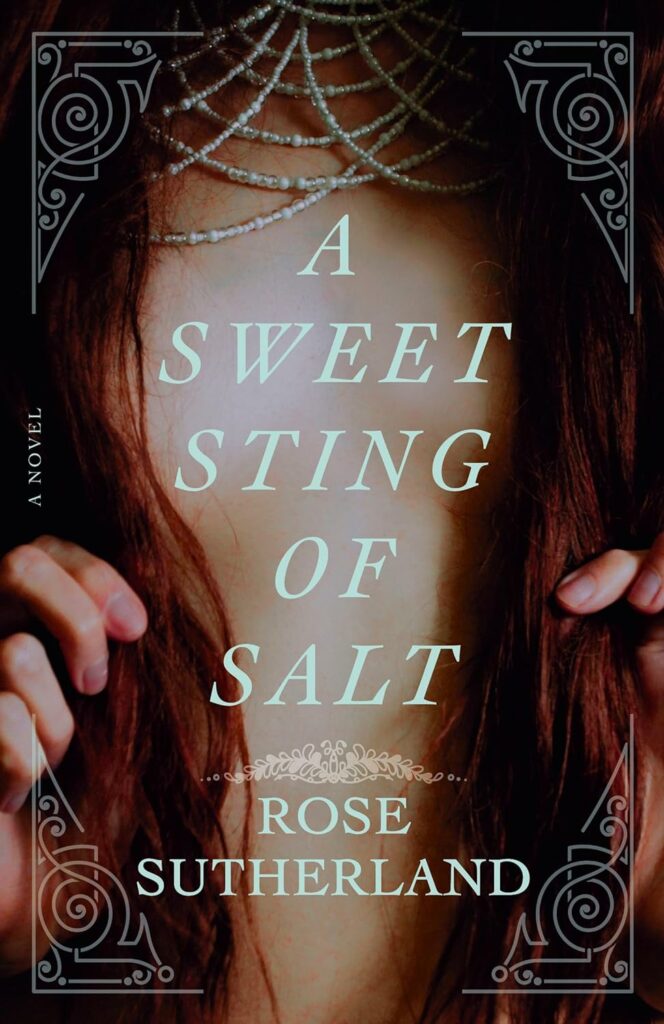
As a writer, who or what would you say are some of your greatest creative influences and/or sources of inspiration in general?
I find inspiration in such random places sometimes that it’s hard to pinpoint, but I get a lot from just walking around and looking at the world, at old buildings and natural locations: I’ll see a place and know it’s going to turn up later, somehow. If I had an unlimited travel budget, I would never stop exploring. I also get a lot of ideas from historical and informational plaques. I spend a non-zero amount of time mucking around in weird corners of the internet, too— I’m fascinated by people’s niche interests and hyperfixations, and some of the deep dives I stumble across on unexpected topics send my imagination in unexpected directions. Conversations with my friends are good for that too—we’re like a flock of magpies, attracted to shiny and unusual tidbits; you never know what’s going to come up over coffee.
What are some of your favorite elements of writing? What do you consider some of the most frustrating and/or difficult?
I adore settings! To me, finding the words to evoke not only how a place looks, but the entire feel of it—in all five senses— is its own kind of alchemy. Location is key for me in storytelling, the specifics of where and when impact everything.
Writing conversations makes me a bit nuts sometimes—not because I’m bad at it, but because it can get frustrating. It would probably be easier if my characters weren’t always trying to hide things from each other, saying things that aren’t exactly lies, but aren’t the whole truth, either…but where would the fun be without it? With Muirin, I added a language barrier on top of that, which made things even more complicated—clearly, I’m a glutton for punishment.
Many authors would say one of the most challenging parts of writing a book is finishing one. What strategies would you say helped you accomplish this?
Writing what I found exciting and wanted to read myself was a big part of it, but I have to give most of the credit to my trusted beta readers for giving me a sense of accountability. I send rough chapters to them as I draft, to read like a serial—I find it so much easier to push through the sticky bits when I know there’s someone else waiting to see what happens next, and if I really start to go off the rails, it’s nice to have someone to call me on it before things get too out of hand!
Aside from your work, what are some things you would want readers to know about you?
That I’m gobsmacked every day when I think how something I loved doing but dismissed as a viable career option more than twenty years ago and picked back up for fun ended up being the thing that finally stuck, after years of spinning my wheels and failing to find success with anything else in spite of all my best efforts. And maybe that I don’t have my sh*t particularly together, no matter how good a job I do seeming like it: I’m an ADHD hot mess who struggles with executive function, and it’s been a real battle finding the habits and routines that work for me, and I want other folks who are in the same boat to know that they’re not alone.
More than anything, I’d like folks to know how grateful beyond belief I am to have them as readers, to know that a book I wrote is finding its way into their hands, and hearts. Thank you, thank you, thank you: I would bake you all a cake if I could!
What’s a question you haven’t been asked yet but that you wish you were asked (as well as the answer to that question)?
I wish folks would ask if there have been any life-imitates-art coincidences involved in the writing of this book, if only so I could tell them about the day I ended up with a man named Tobias working on the roof of my house following a chimney fire… at the exact same time that I was doing revisions on a scene that features A MAN NAMED TOBIAS WORKING ON THE ROOF OF HIS HOUSE. Utterly surreal.
What advice might you have to give for aspiring writers?
Write what you love, because you’re going to end up spending a lot of time with it. Make friends with other writers, and support each other. I’ll also paraphrase this particular gem from Neil Gaiman: If people tell you that there’s something wrong with your work, they’re probably right—but they’re almost always wrong about how you should fix it. I like this a lot; it always leads me to creative problem solving.
Are there any other projects you are working on and at liberty to speak about?
I have a couple of things on the go, but the one on the front burner right now is another historical, set in 18th century provincial France. It’s loosely based on a true story, and although I wouldn’t consider it a direct retelling, it is a riff on a popular fairytale. I’m having a lot of fun researching a very specific branch of French folklore as I work on the first draft!
Finally, what LGBTQ+ books/authors would you recommend to the readers of Geeks OUT?
I always find it difficult to make blanket recommendations, as people have such varied tastes, but that said, my friend Isa Arsen’s debut Shoot The Moon came out earlier this year, and it’s spectacular: The main character is working with NASA in the lead up to the moon launch, and it’s speculative in a way that plays fast and loose with time.
For something completely different, if you’re into pirates, indie author Katie Crabb‘s epic Constellation trilogy is concluding this spring, with the third book, Sailing By Gemini’s Star, coming out on May 28.
Header Photo Credit Dahlia Katz

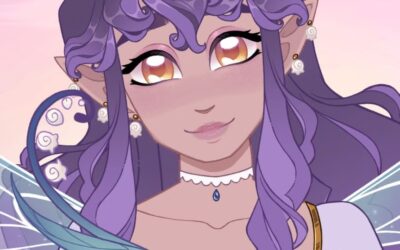
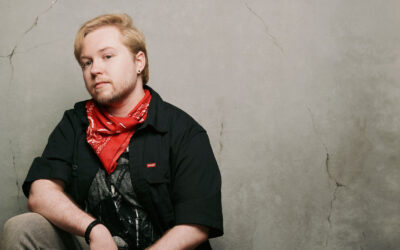
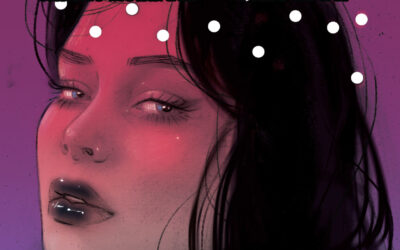
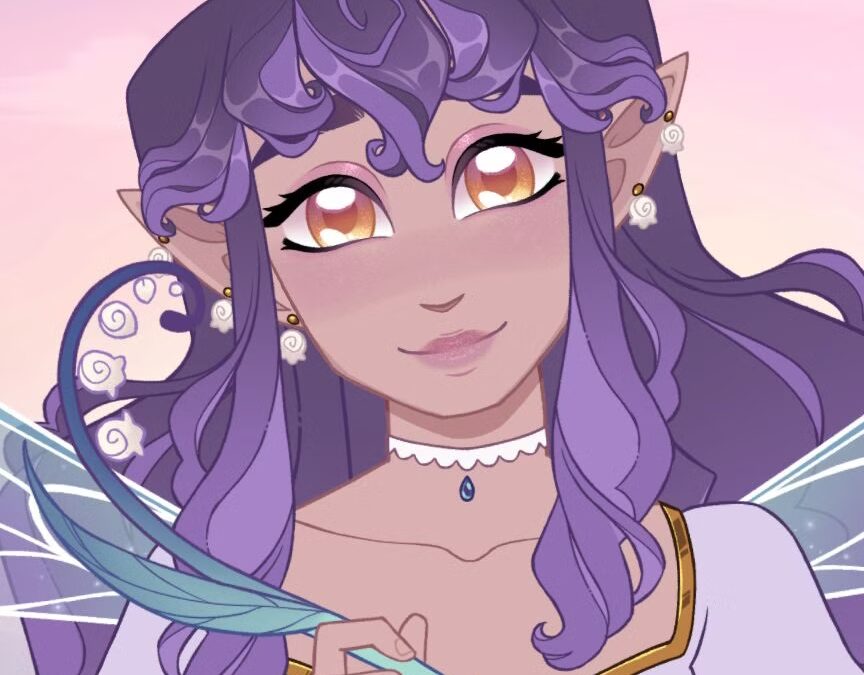
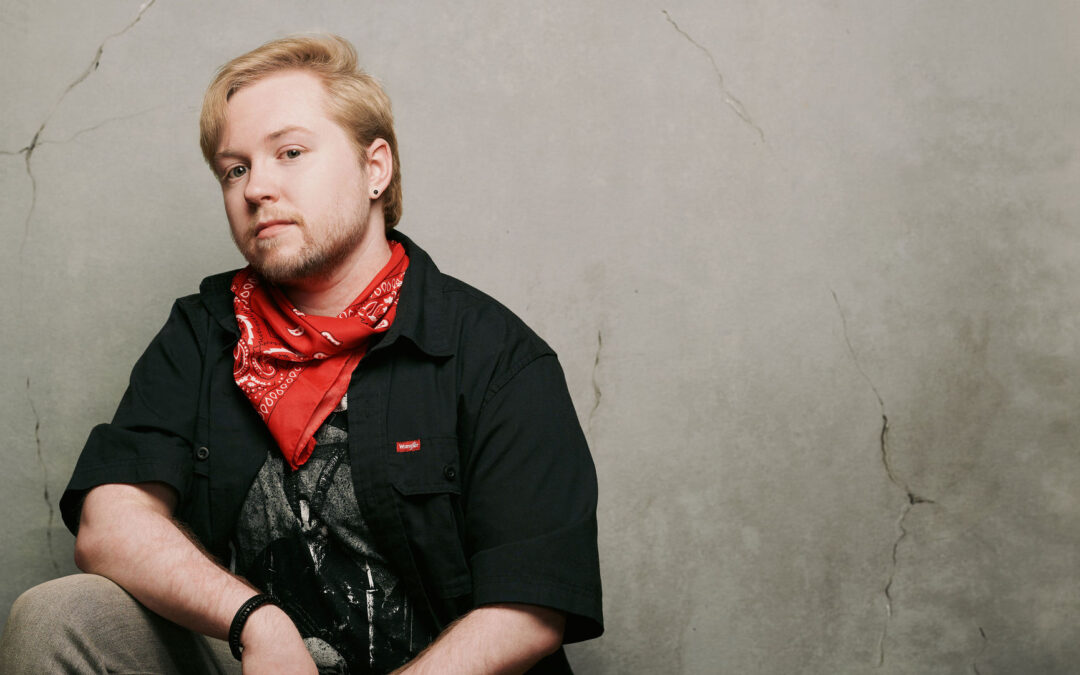
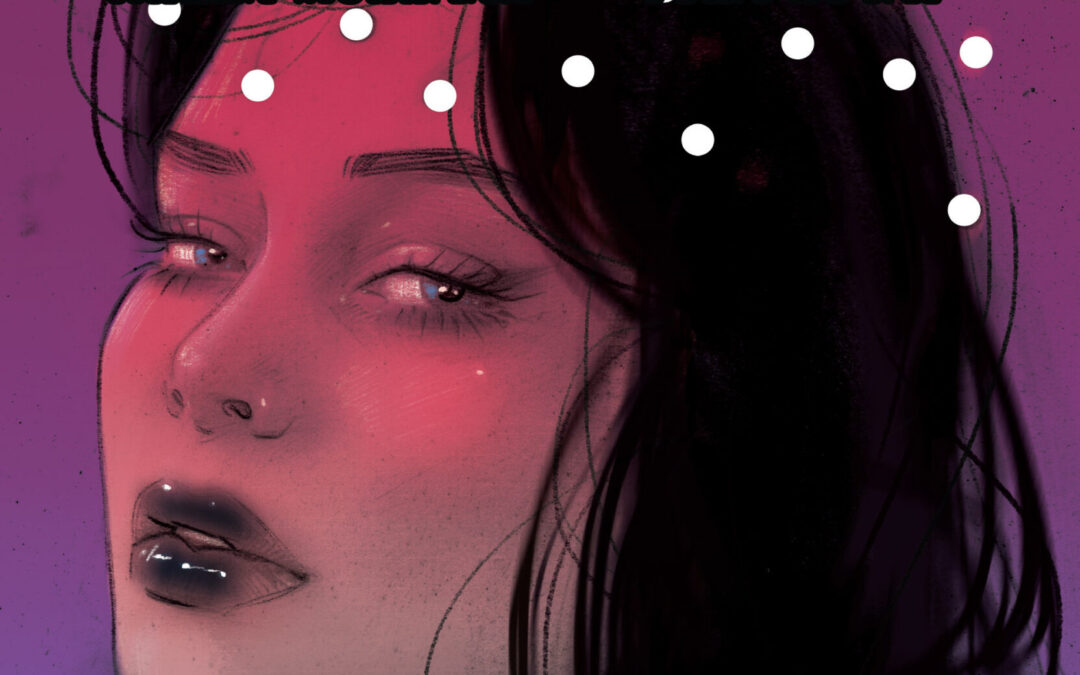
0 Comments